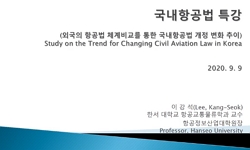본 연구에서는 가사서비스업 종사자의 인구사회학적 특성과 근로실태, 그리고 복지욕구에 대해서 알아보았다. 조사는 대전지역 복지기관 및 여성단체에서 가사서비스업에 종사하고 있는 ...
http://chineseinput.net/에서 pinyin(병음)방식으로 중국어를 변환할 수 있습니다.
변환된 중국어를 복사하여 사용하시면 됩니다.
- 中文 을 입력하시려면 zhongwen을 입력하시고 space를누르시면됩니다.
- 北京 을 입력하시려면 beijing을 입력하시고 space를 누르시면 됩니다.
가사서비스업 종사자의 근로실태와 복지욕구에 관한 연구 = (A) Study on the Working Conditions and Their Needs of Home-making Service Employees
한글로보기https://www.riss.kr/link?id=T9167082
- 저자
-
발행사항
대전 : 한남대학교 사회문화과학대학원, 2004
-
학위논문사항
학위논문(석사) -- 한남대학교 사회문화과학대학원 , 사회복지학과 , 2004. 2
-
발행연도
2004
-
작성언어
한국어
- 주제어
-
KDC
338 판사항(4)
-
DDC
362 판사항(19)
-
발행국(도시)
대전
-
형태사항
viii, 76p. : 삽도 ; 26cm.
-
일반주기명
참고문헌: p. 61-62
- 소장기관
-
0
상세조회 -
0
다운로드
부가정보
국문 초록 (Abstract)
본 연구에서는 가사서비스업 종사자의 인구사회학적 특성과 근로실태, 그리고 복지욕구에 대해서 알아보았다. 조사는 대전지역 복지기관 및 여성단체에서 가사서비스업에 종사하고 있는 기혼여성 121명을 대상으로 하였다. 그 결과는 다음과 같다.
첫째, 가사서비스업 종사자의 평균 연령은 약 48세 정도였고, 고졸자 이상의 학력자와 남편이 실직한 경험이 있는 경우가 과반수 이상이었다. 가족전체 수입이 100만원 이상인 가정이 다수를 차지하고 있었으며, 정부지원금을 받은 경험이 있거나 받았다고 응답한 경우는 적어서 정부지원이 필요한 극빈곤층 보다 차상위층이나 그 이상의 계층에서 많은 참여를 하고 있는 것으로 조사되었다.
둘째, 조사대상자들은 가사서비스업 이전에 다른 일을 해 본 경험이 없는 경우가 있는 경우보다 미비한 차이로 더 많았으며. 다양한 기술과 자격증을 소지한 것으로 나타났다. 이러한 기술과 자격증에는 가사서비스업보다 사회적으로 높게 평가되고 있는 종류의 것도 있었다.
직업을 바꿀 의향이 있는 경우, 직업에 대한 낮은 사회적 인식 때문이라는 이유가 가장 많았다. 또 일로 인한 불쾌감을 경험했을 때는 다투지 않고, 참거나 같은 일을 하는 동료들과 상담한다는 응답이 많았다. 따라서 고용인으로서 나아가서는 가사서비스업에 대한 우리 사회의 의식전환이 시급하며, 근로에 대한 정신적 고통을 해결해 줄 수 통로가 있어야 마련되어야 할 것이다.
셋째, 조사대상자들은 일에 대한 만족도가 높은 반면 스트레스도 많이 느끼고 있었다. 특히 남편의 실직경험이 있는 여성들의 스트레스 정도가 높았다.
넷째, 조사대상자들이 받는 교육은 소속기관마다 차이가 있었으나 초기교육 특히 재교육 및 월례회의는 일을 하는데 도움이 되는 것으로 나타났다. 또한 일과 관련된 전문교육뿐만 아니라 다양한 교육욕구와 자신이나 가족의 문제 등으로 인한 상담욕구를 가지고 있었다. 가사서비스업의 자격증 제도와 종사자들의 욕구를 직접적으로 대변하고 옹호하는 협회의 필요성이 높은 것으로 나타났으며, 본인의 협회 참여의사 역시 높은 것으로 조사되었다.
이상의 조사결과를 바탕으로 몇 가지 제언을 하면 다음과 같다.
첫째, 가사서비스업 종사자의 연령, 학력 및 경제수준 등 다양한 인구사회학적 특성과 복지욕구에 맞는 복지서비스가 실시되어야 한다. 과거 가사서비스업은 빈곤층에서만 종사하는 업종으로 한정되어 왔으나, 조사결과 여러 계층에서 참여하고 있음을 알 수 있었다. 직종의 중요성과 다양성을 공론화해 가사서비스업 종사자의 위상을 정립해야 한다.
둘째, 조사대상자의 일과 가사로 인한 스트레스 해결을 위해 정서적 개입방법의 모색이 필요하다. 또 다양한 복지욕구 충족을 위해 교육 및 월례회의 강화와 프로그램의 개발이 요구된다.
셋째, 사회적 인증을 받을 수 있는 자격증을 신설하고, 조사대상자의 전문성을 확보하여 노동 가치를 높여야 한다. 더 나아가 사회보험의 가입을 통해 근로에 대한 안정화를 추진해야 한다.
넷째, 협회 창설로 가사서비스업 종사자의 사회적 지위를 공식화하는 방안도 적극 모색해야 할 것이다. 또 사회복지분야에서 여성자활사업의 일환으로 연계될 수 있는 방안도 제시되어야 할 것이다.
다국어 초록 (Multilingual Abstract)
This study investigated the socio-demographic characteristics of home-making service employees, their working conditions and needs. It attempted to investigate 200 married women who were employed in homemaking service jobs across welfare centers and ...
This study investigated the socio-demographic characteristics of home-making service employees, their working conditions and needs.
It attempted to investigate 200 married women who were employed in homemaking service jobs across welfare centers and women's organizations in Daejeon metropolitan area. Out of these 200 subjects, the data from total 121 respondents were used for this study.
The results of investigation can be outlined as follows:
First, the average age of home-making service employees was about 48, and majority of them had academic careers beyond the graduation from high school and experiences in husband's unemployment. Majority of respondents answered that total household incomes exceeded min. 1 million Korean won, while a few respondents answered that they had ever once or more experiences in receiving governmental subsidy. On the other hand, it was found that semi-destitute or lower classes more often participated in governmental support than destitute class in need.
Secondly, the respondents without any experience in doing other jobs before employed in home-making service were a little more than those with such experience. And most respondents owned various skills and qualifications. Some of these skills and qualifications were socially even more respected than home-making service. For the respondents who intended to turn from current job, most of them attributed the reason to low social recognition for home-making job.
In addition, when feeling any uneasiness or stress due to home-making works, many of them just withstood it or consulted co-workers about it rather than sought a quarrel with a party concerned. It is impending for employers or society to convert conventional awareness about home-making services into positive direction. Moreover, there should be potential paths to resolve mental suffering in home-making works.
Thirdly, most respondents had relatively high satisfaction at their works, while often feeling stressed. Especially, the respondents with experience in husband's unemployment revealed higher stress than control group.
Fourthly, the education provided for respondents was different depending on the nature of organization employing them. It was notable that initial education - especially reorientation and monthly meeting - helped them carry on their home-making works. Moreover, most respondents had various educational needs including technical education related to their works, and also had counseling needs due to matters about themselves or their own family.
Most respondents pointed out that it was very necessary to establish qualification system for home-making services and found an association that may advocate and speak for the needs of home-making employees at first hand. Besides, they also showed high intention to participate in association.
Based on these results, this study may offer several suggestions as follows:
First, it is important to provide welfare service to meet various welfare needs and socio-demographic attributes such as age, academic career and economic level of home-making service employees.
In past, home-making service was just deemed a business only for poor class. But the result of this study showed that various classes participated in home-making service. Accordingly, it is required to set up the social position of home-making service employees by referring the importance and variety of home-making job to public opinions.
Secondly, it is necessary to seek for possible emotional intervention to resolve their stress under jobs and home-making. And it is also necessary to enhance reorientation and monthly meeting for them and develop related programs so as to meet various welfare needs.
Thirdly, it is essential to newly establish proven qualifications for home-making around society, while enhancing their labor values with full specialty and expertise in home-making. It is required to promote home-making workers' labor into more stable status than now by applying social insurance to them as well. Furthermore, it is recommended that their associations should be founded to formulate social position of home-making service employees.
목차 (Table of Contents)
- 감사의 글 = i
- 국문초록 = ii
- 목차 = v
- [표찰례] = vii
- Ⅰ. 서론 = 1
- 감사의 글 = i
- 국문초록 = ii
- 목차 = v
- [표찰례] = vii
- Ⅰ. 서론 = 1
- 1. 연구의 필요성 = 1
- 2. 연구의 목적 = 4
- 3. 연구의 한계 = 5
- Ⅱ. 이론적 배경 = 6
- 1. 노동시장의 변화와 여성취업 = 6
- 2. 가사서비스업 종사자의 근로 실태 및 사회복지적 의미 = 15
- Ⅲ. 조사방법 = 20
- 1. 대상자 선정 및 자료수집 = 20
- 2. 조사도구 = 21
- Ⅳ. 조사결과 = 23
- 1. 조사대상자의 일반적 특성 = 23
- 2. 조사대상자의 근로 실태 = 29
- 3. 인구사회학적 변인에 따른 가사서비스업 종사자의 근로만족도 및 스트레스의 차이 = 43
- 4. 조사 대상자의 생활문제와 복지욕구 = 47
- Ⅴ. 결론 = 54
- 참고문헌 = 61
- Abstract = 63
- 설문지 = 67












